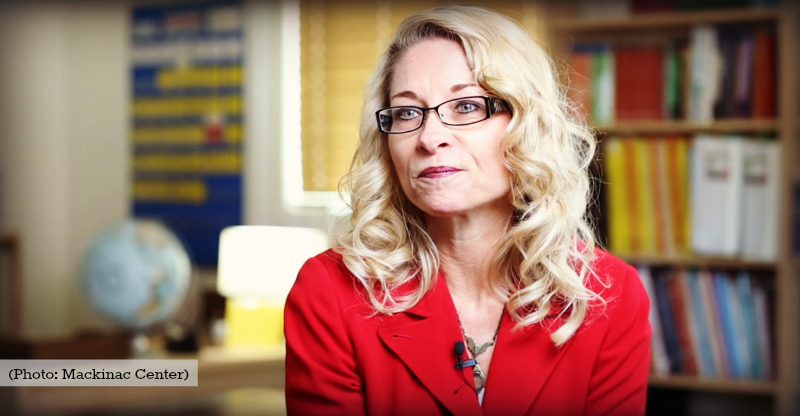A California teacher, who has logged 28 years in the profession, is waging a battle that could have a significant impact on public employee unions and First Amendment protections for teachers across the nation.
The Supreme Court heard the case recently. The outcome could diminish the power of public-sector unions.
Rebecca Freidrichs is a third grade teacher at Holder Elementary School in Buena Park, California. Early in her teaching career, she was a full dues-paying union member. But she didn’t agree with the union’s stance against a school choice initiative and declined to participate in the union’s phone bank to defeat it. Eventually she dropped her union membership. But she’s still paying fees to the state’s teachers union. Since the union negotiates contracts for teachers, it claims it should be compensated. So it collects what’s called agency fees, claiming these fees are its “fair share” earned for its collective bargaining activities.
The case is Freidrichs v. California Teachers Association. At its heart are these agency fees public employees pay unions, even though they are not union members. Rebecca Freidrichs and nine other teachers are fighting the requirement in California law that they pay these fees to the California Teachers Association, an affiliate of the National Education Association.
According to the Heritage Foundation, “In nearly half of the states, public sector workers can opt out of paying full union dues and instead pay agency fees, which fund collective bargaining negotiations.” A 1977 Supreme Court decision spares workers from being compelled to pay for a union’s direct political activities.
Rebecca Freidrichs and the other teachers say that they should not have to pay, even for collective bargaining because the positions taken in negotiations with school administrators reflect the political views of the union, positions they don’t necessarily agree with. After all, unions are negotiating over the best use of tax dollars and as Rebecca Freidrichs says, “That’s political.” She adds, “When you consider the fact that unions use their political dollars to put the officials in their positions, it becomes a troubling situation, because the unions and the local officials are on the same side of the table.”
Here’s a position the union takes which Rebecca Freidrichs opposes but still has to pay for: The California teachers’ union advocated for LIFO, a “last in, first out” policy which centers on seniority-based layoffs. She strongly disagrees with this policy, saying, “That hurts children.” She says LIFO amounts to, “putting seniority rights ahead of merits. In California,” she says, “we just had a teacher of the year who was laid off because of last in, first out. That is just totally wrong. LIFO is political.”
Another of the plaintiffs, Sheri Joseph, objects to paying agency fees that go toward political causes that violate her religious beliefs. In oral arguments, a majority of the justices seemed sympathetic. Hopefully they’ll decide to protect teachers’ rights of free speech and free association.
 Listen Online
Listen Online Watch Online
Watch Online Find a Station in Your Area
Find a Station in Your Area









 Listen Now
Listen Now Watch Online
Watch Online
